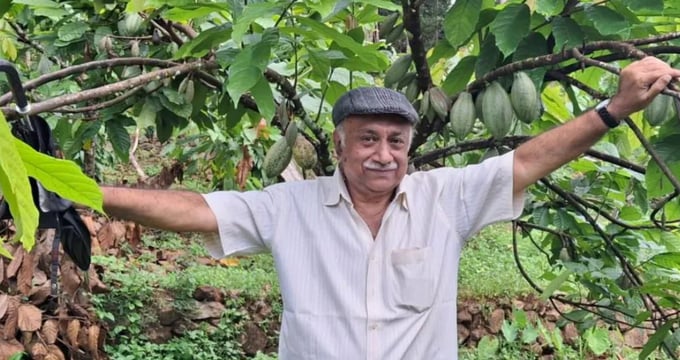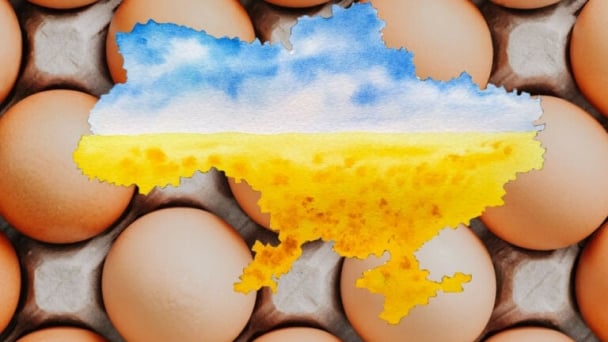May 20, 2025 | 22:41 GMT +7
May 20, 2025 | 22:41 GMT +7
Hotline: 0913.378.918
May 20, 2025 | 22:41 GMT +7
Hotline: 0913.378.918

George Matthew moved into cocoa production to keep his farm going.
His farming career began in the 1970s when he inherited a rubber plantation in the the southern Indian state of Kerala , which he managed alongside his career as a doctor.
It was a bad time to inherit a rubber plantation, falling rubber prices meant it kept losing money. So, 10 years ago Dr Matthew decided to experiment with cocoa trees, hoping they would generate some funds to support the rest of the farm.
He bought some saplings and planted them. It didn't go well.
"It was not that successful - most of the saplings died," he says.
Squirrels appeared to be making the situation worse by grabbing cocoa bean pods and eating them.
But those raids had an unexpected benefit - cocoa seeds were spread all over the farm.
"All the scattered seeds soon grew in to plants and they were much healthier and stronger than the saplings I had planted," says Dr Matthew.
"The trick was in sowing the seeds," he realised.
Today Mr Matthews has 6,000 cocoa trees on his 50 acres of land.
"I think it was the best decision I have made," he says.
Despite having several regions with weather conditions suitable for cocoa trees, India only accounts for 1% of the world's cocoa bean production.
Global production is currently dominated by West Africa, where Côte d'Ivoire and Ghana between them produce more than half of the world's annual output.
Indian growers can only supply a quarter of the beans needed by Indian makers of chocolate and other confectionary.
"The challenge is that it is grown in very fragmented small holdings, so it does not get the kind of attention cocoa should get," says Renny Jacob, chairman of India Cocoa, a private company that has been growing and processing cocoa beans for more than 30 years.
In particular he says that Indian farmers are poor at handling beans after they have been harvested. Once removed from their pods, beans go through a fermentation process at the farm, which can make a huge difference to their flavour.
"Cocoa fermentation is a critical process in the production of chocolate, transforming raw cocoa beans into a form suitable for chocolate making," says Sarin Partrick, chief executive of India Cocoa.
"This complex process involves several stages and the activity of various micro-organisms, which help develop the beans' flavour, aroma, and colour," he says.
(BBC)

(VAN) Oliyar, a prominent Ukrainian oil and fat manufacturer, has revealed plans to build a farm for 2.3 million laying hens in the Lviv region. The additional production quantities promise to change the competitive landscape of the egg market of the Eastern Europe region.

(VAN) On May 15, Ministry of Agriculture and Environment of Vietnam hosted the 'Connecting Vietnam - Germany agricultural, forestry and fishery trade' seminar in Berlin, Germany.

(VAN) In the face of counterfeit and imitation products, Khanh Hoa Salanganes Nest Company hopes for the prompt completion of the legal framework, strict enforcement against violations, and protection of the bird’s nest brand.

(VAN) Japan's efforts to lower the price of rice through the release of its stockpile may finally be making some progress, albeit at a snail's pace.

(VAN) U.S. tariffs are not only a 'shock', but also an opportunity for Vietnamese businesses to renew their mindset toward comprehensive development.

(VAN) As Bac Giang lychee enters the harvest season, Minister Do Duc Duy expects that the fruit will contribute greatly to agricultural exports due to standardized production and deep processing.

(VAN) Consumers have shown a preference for free-range eggs, but those farming systems are more vulnerable to biosecurity risks like bird flu.